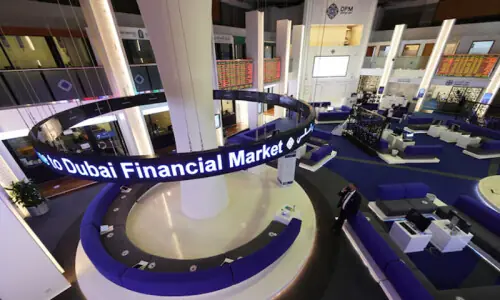ISLAMABAD: Pakistan has refused part financing from the Asian Development Bank (ADB) for the $8 billion Karachi-Peshawar Railway Line (ML-1) after China said it wanted to fund the project single-handedly.
“China strongly argued that two-sourced financing would create problems and the project would suffer,” Minister for Planning and Development Ahsan Iqbal told a news conference on Thursday.
The minister said he would not comment whether the Ministry of Railways has resisted the Chinese request for fears of monopoly, but said the entire financing would now come from China. The project was originally planned to be partly funded by the Manila-based ADB.
Minister claims Planning Commission saved Rs560bn in four years
He said the ADB would be accommodated in some other projects, such as those under the Central Asian Regional Economic Cooperation programme.
Under the original plan, the ADB had to provide $3.5bn for the 1,700-kilometre-long line considered the backbone of the country’s logistics connecting two major ports with the rest of the country for transporting goods and passengers.
The minister said the Chinese government therefore wanted that the project financing should be kept single-sourced. Pakistan and China are expected to sign a formal agreement in this regard next month.
Mr Iqbal said the Planning Commission was making efforts to maximise allocation of funds for the next year’s development programme as it would be the final year of the current government. Therefore, the government would like to complete maximum number of projects during this period so as to support the growth momentum.
He said it was also important to have larger development portfolio for the next year because it would trigger activity in the construction industry on which a number of other growth-oriented industries were dependent because of its potential to create jobs.
“But we also have to balance ways and means,” he said, adding that the Planning Commission demanded Rs1 trillion for the of next year’s public sector development programme (PSDP), but the finance ministry has put a ceiling of Rs700bn.
He said the finance minister and the prime minister would be requested to increase development allocations. The minister said the annual plan coordination committee would meet on May 17 to finalise next year’s development programme. And for a formal approval, the Planning Commission has proposed a meeting of the National Economic Council on May 21 or 22, depending on prime minister’s availability.
Mr Iqbal said that since the current government came to power in 2013, the commission has saved Rs560bn by cutting project costs, transparency and scrutiny.
This included $1.6bn saving in highway projects under the China-Pakistan Economic Corridor (CPEC) and Rs70bn in Jamshoro Coal Power Project. He said another $1bn saving has been secured from three liquefied natural gas–based power projects through competitive bidding by the executing agencies.
He said the increased development portfolio has exposed the capacity of the various ministries and executing agencies to process a massive workload. Also, these agencies have formulated their project papers on the basis of feasibility studies prepared by international consultants.
Mr Iqbal said the government has decided not to include any major project in the PSDP without completion of technical designs and financial closures. Previous governments included thousands of projects through “token allocations” without protecting major ongoing projects, he added.
He said it was observed that 70pc of cost overruns were resulting because of inadequate financing in the PSDP. For example, the Bolan Medical College was started by former prime minister Zulfikar Ali Bhutto at an estimated cost of Rs7.5 million, but it was finally completed at a cost of Rs130m due to inadequate funding.
This also inflates projects’ cost, delays implementation, and results in hundreds of white elephants like Neelum-Jhelum Hydropower Project, which was started at cost of Rs80bn but ended up costing more than Rs500bn because the project’s design kept changing as the implementation progressed.
He said the government also revived some of the dead projects which had already consumed a lot of funds. Some of these included Quetta-Gwadar Highway (N-85) that was under suspension and was revived by the current government and made a connection under the western route of the CPEC.
Lowari Tunnel, Islamabad International Airport, Katchhi Canal and Chitral Hydropower Project were some other important projects that became a subject of neglect, corruption and mismanagement, but they have been revived and would be completed during the current fiscal year, he said.
Responding to a question, the minister said the current development portfolio involved 752 projects of Rs7.3tr.
Published in Dawn, April 28th, 2017

































